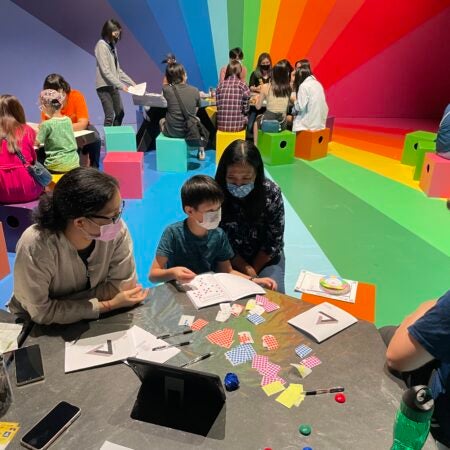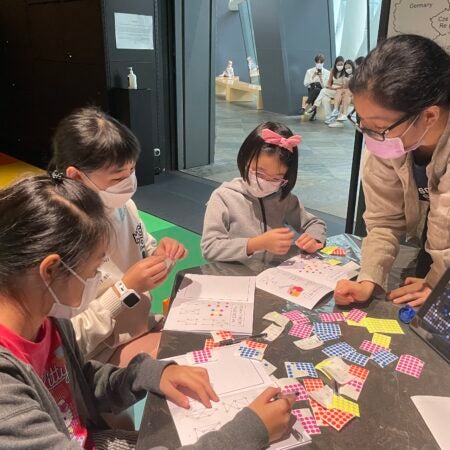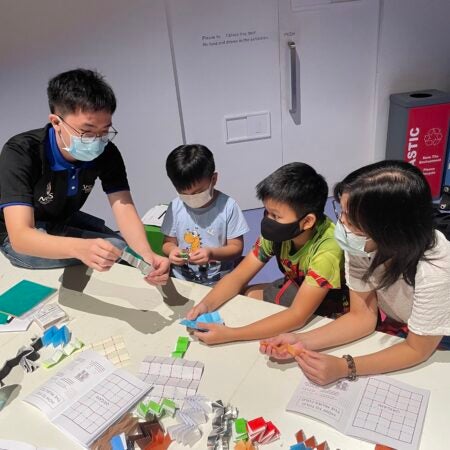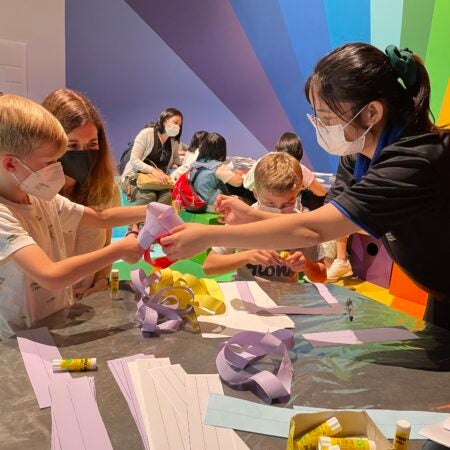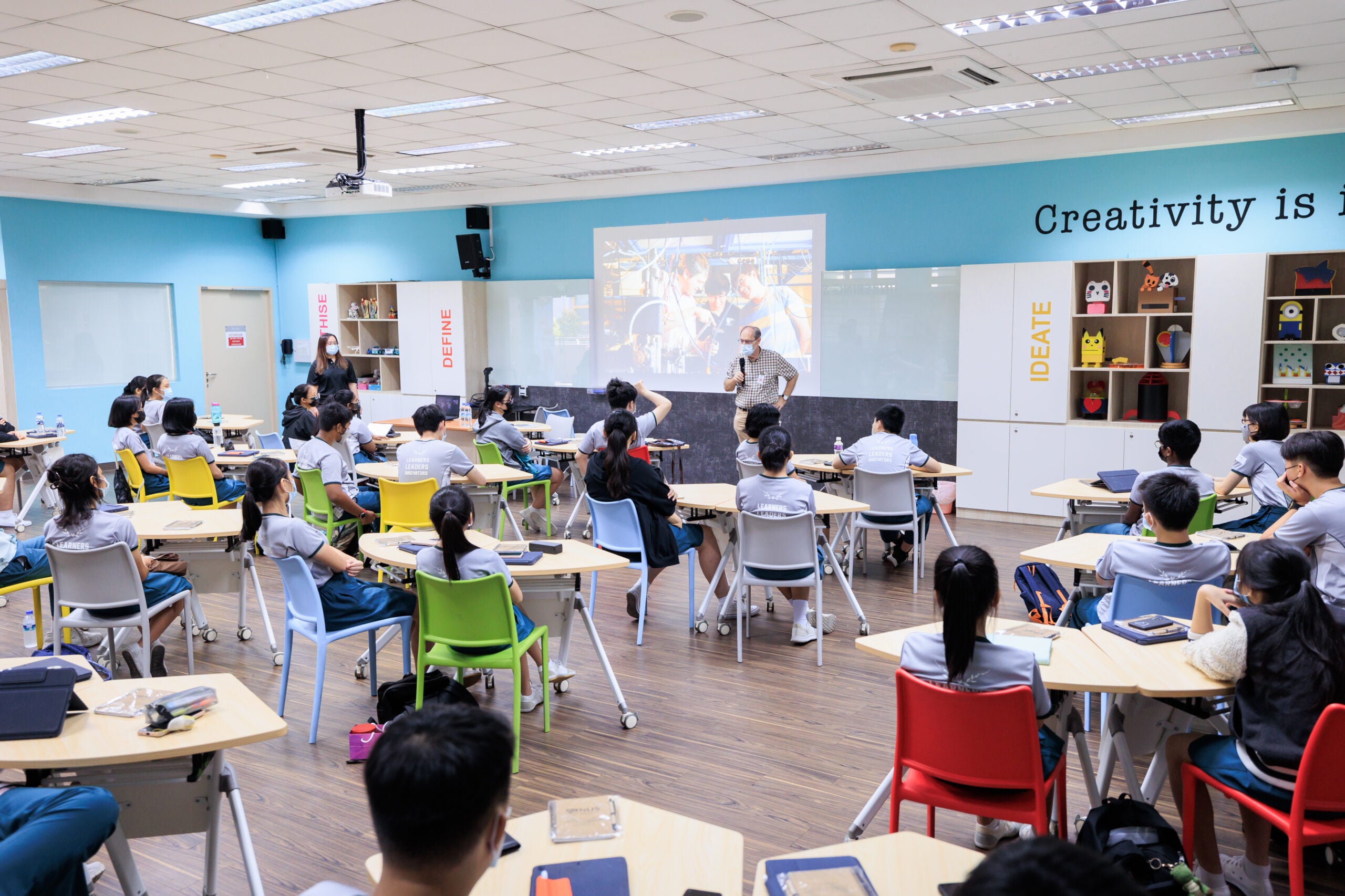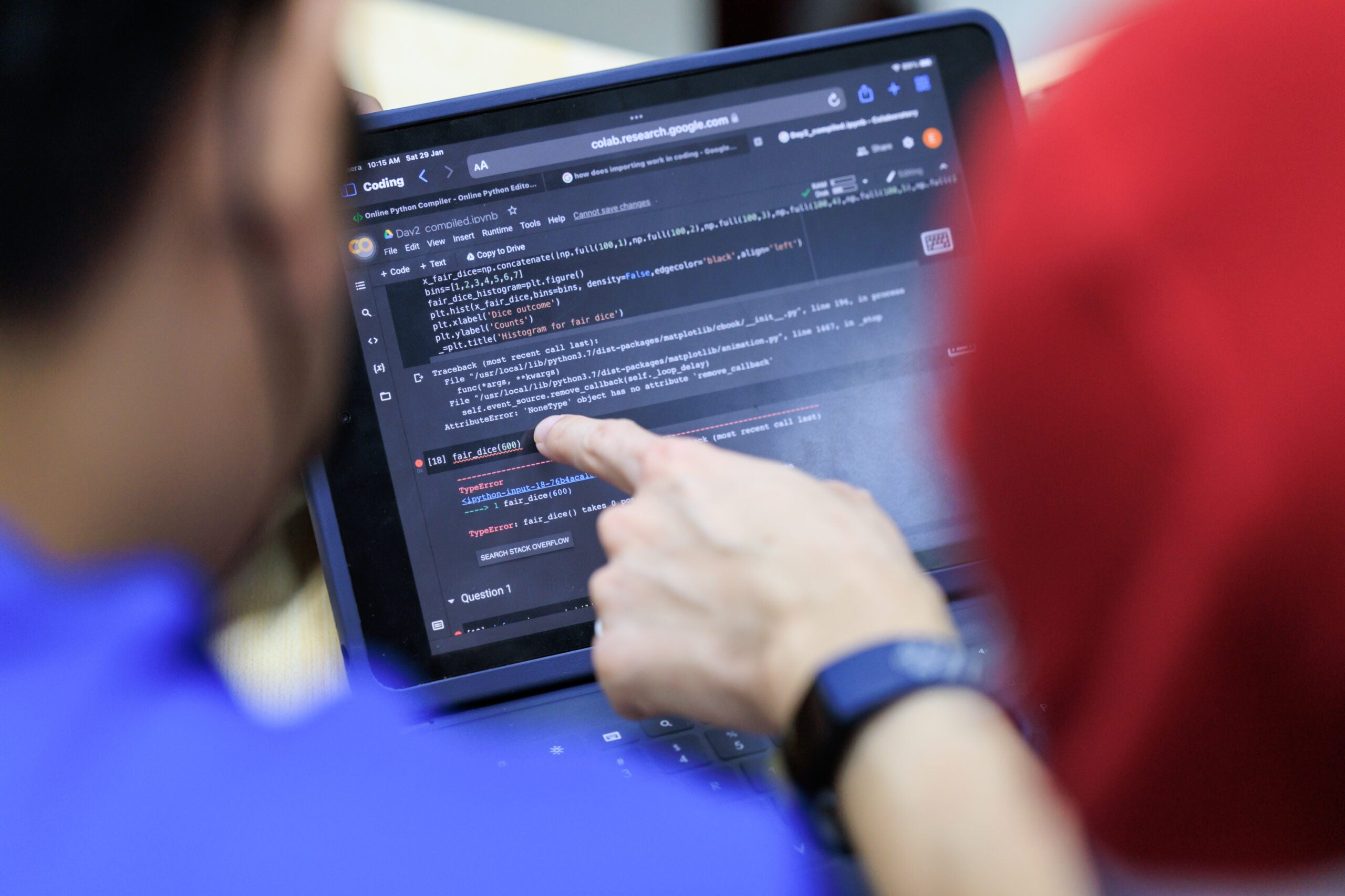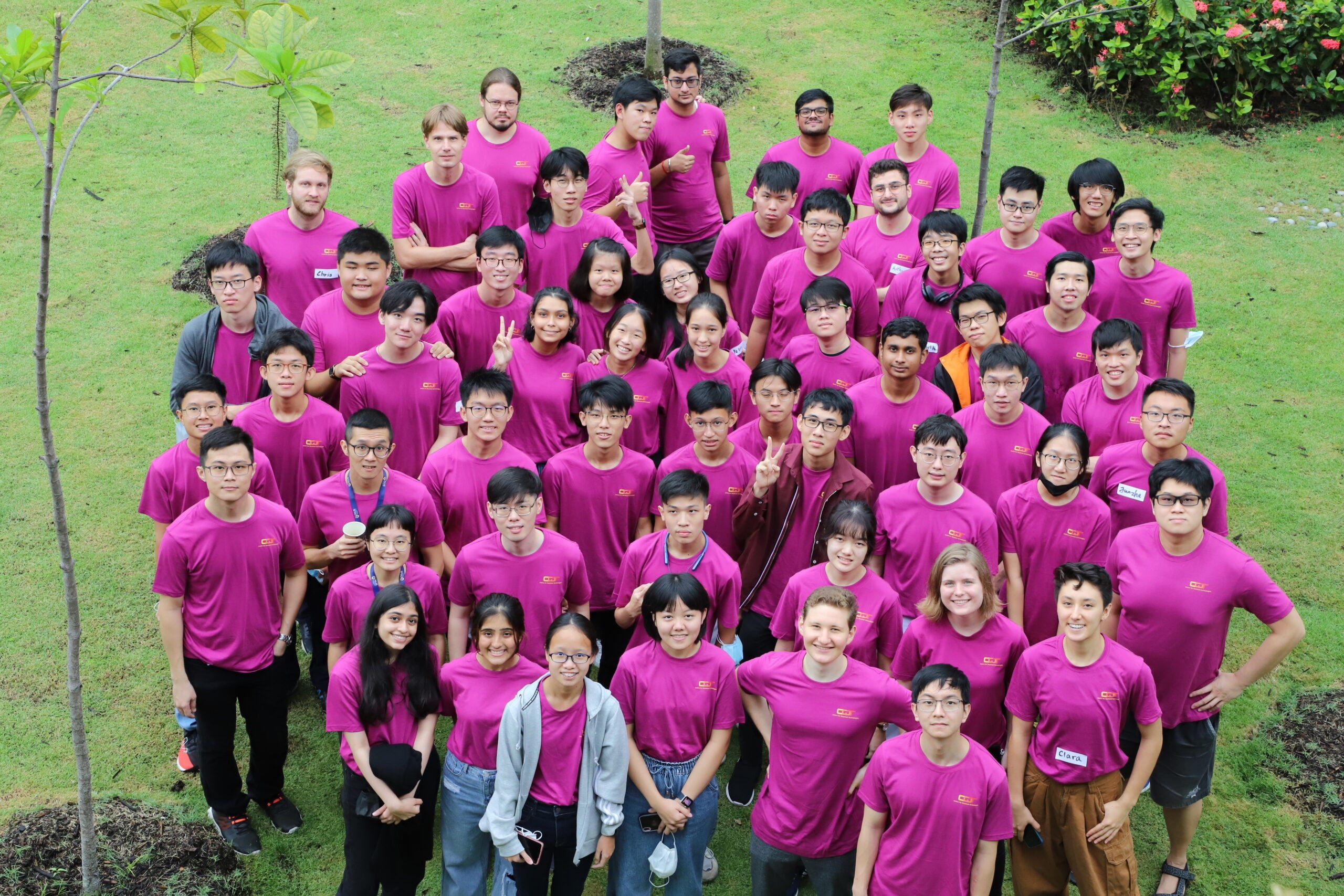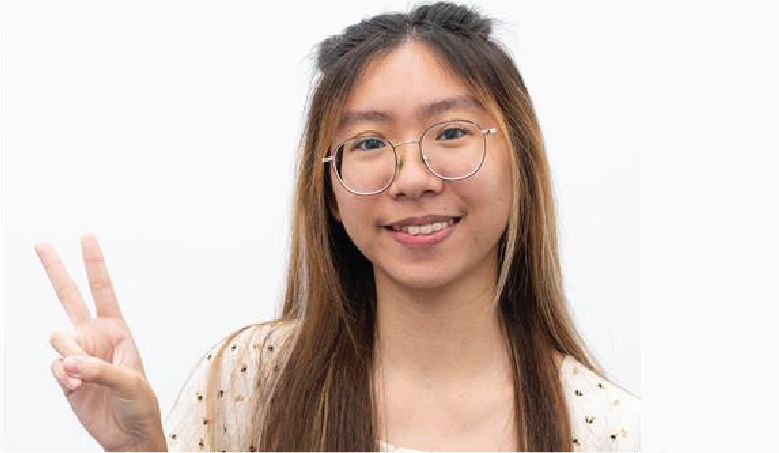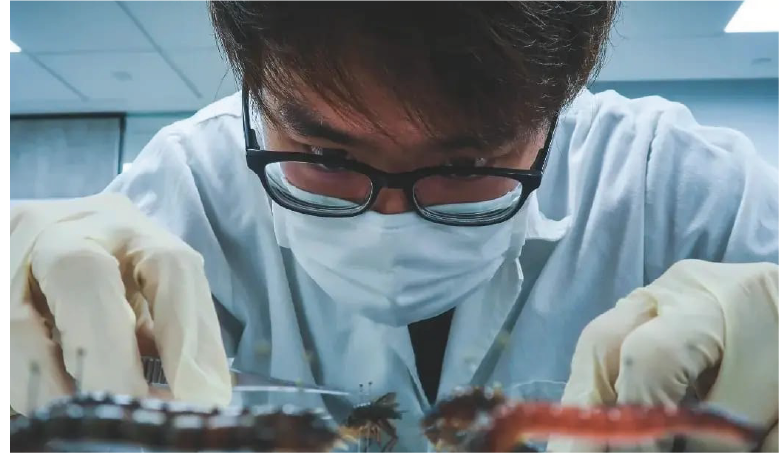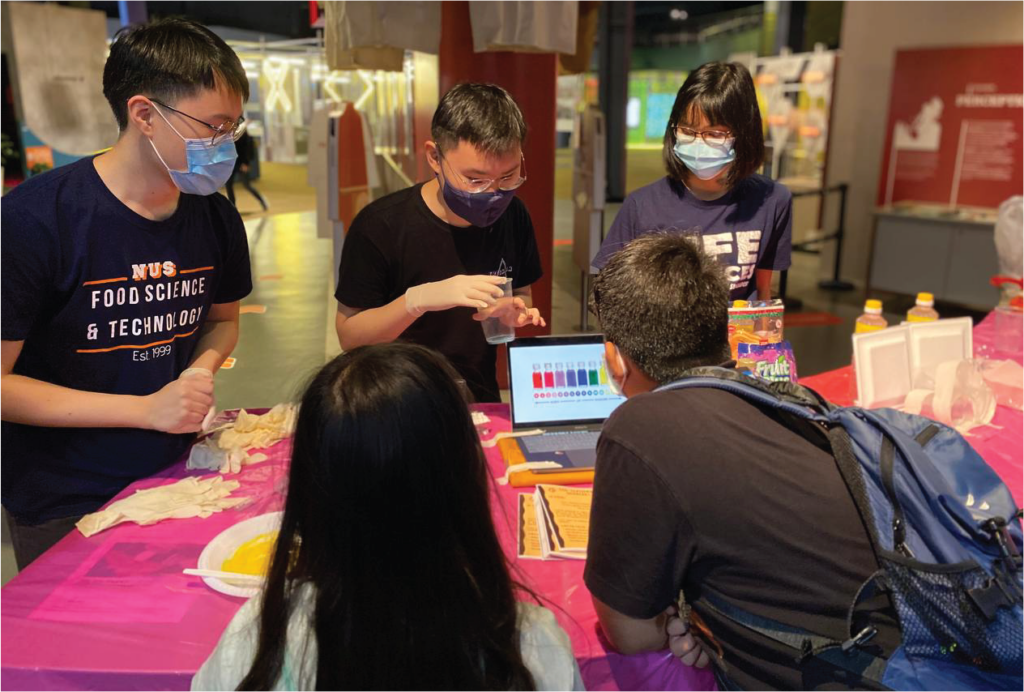ArtScience Museum (ASM) collaboration
The Faculty’s Young Educators in Science (YES) worked with ASM to inspire 300 visitors with activities illustrating the intersection of art and mathematics. In June and September 2022, they offered art-science workshops where visitors experimented with colouring maps, discovered how origami plays a role in space flight, pondered on the wonders behind the variants of the Möbius strip and uncovered the basics of cryptography. YES is also collaborating with the Ministry of Education to jointly create some mathematics-anchored applied learning activities for junior college and pre-university students.
